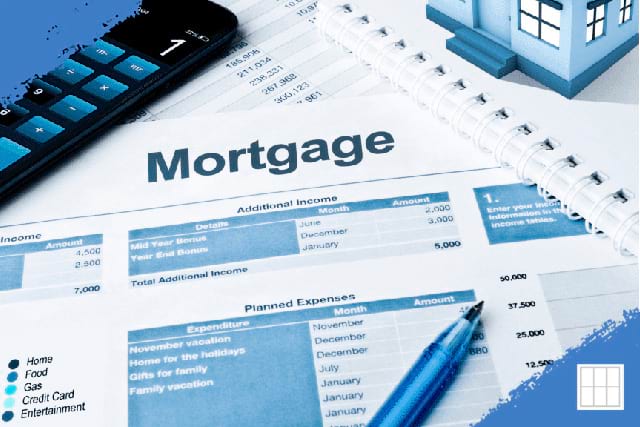A Beginner's Guide to Navigate the Mortgage Process with Ease Buying a house is one…

Understanding Homeowners Insurance and How to Compare Policies
As you navigate the home buying process, one critical step is securing homeowners insurance. This essential coverage protects your investment by safeguarding your home and personal belongings against unexpected events like fires, theft, or natural disasters. However, with so many policies and providers available, choosing the right one can feel overwhelming. In this guide, we’ll break down what homeowners insurance is, what it covers, and how to compare policies to find the best fit for your needs. Understanding homeowners insurance is key to a successful home purchase, and our team at Metropolitan Mortgage is here to support you every step of the way.
What Is Homeowners Insurance?
Homeowners insurance is a type of property insurance that provides financial protection for your home, personal belongings, and liability risks. Most mortgage lenders require it as a condition of approving your loan, ensuring that their investment—and yours—is protected. According to the Insurance Information Institute, homeowners insurance typically covers:
- Dwelling Coverage: Repairs or rebuilds your home’s structure if damaged by covered events like fire, windstorms, or hail.
- Personal Property Coverage: Replaces personal belongings (e.g., furniture, electronics) damaged or stolen, up to policy limits.
- Liability Coverage: Covers legal and medical costs if someone is injured on your property or you accidentally damage someone else’s property.
- Additional Living Expenses (ALE): Pays for temporary housing and living costs if your home becomes uninhabitable due to a covered event.
Note: Standard policies often exclude certain perils, such as floods or earthquakes, which may require separate coverage. Check with your insurer to understand what’s included.
Why Homeowners Insurance Matters During the Home Buying Process
When buying a home, homeowners insurance isn’t just a box to check—it’s a critical part of your financial planning. Here’s why it matters:
- Lender Requirements: Most lenders require proof of insurance before closing, as it protects their financial stake in your property.
- Cost Considerations: Insurance premiums add to your monthly housing costs, so factoring them into your budget is essential to ensure affordability.
- Peace of Mind: Knowing your home and belongings are protected allows you to focus on enjoying your new space.
Our mortgage experts at Metropolitan Mortgage can help you align your insurance and mortgage needs for a seamless home buying experience.
How to Compare Homeowners Insurance Policies
Not all homeowners insurance policies are created equal. To find the right one, compare key factors to ensure you’re getting adequate coverage at a fair price. Here’s a step-by-step guide:
1. Assess Your Coverage Needs
Start by evaluating your home’s value, location, and personal belongings. Consider:
- Replacement Cost: The cost to rebuild your home, not its market value. Your insurer can help estimate this.
- Personal Property: Inventory your belongings to determine how much coverage you need. High-value items like jewelry may require additional endorsements.
- Location Risks: Homes in areas prone to floods, hurricanes, or wildfires may need specialized coverage. Check the FEMA Flood Map Service Center to assess flood risk.
2. Compare Policy Types
Homeowners insurance policies vary in scope. The National Association of Insurance Commissioners outlines common policy types, such as:
- HO-3 (Special Form): The most common policy, covering the home and personal property against all perils except those explicitly excluded (e.g., floods, earthquakes).
- HO-5 (Comprehensive Form): Offers broader coverage for both home and personal property, ideal for high-value homes.
- HO-2 (Broad Form): Covers only specific named perils, making it less comprehensive but often cheaper.
Tip: An HO-3 policy is typically sufficient for most homeowners, but review exclusions carefully.
3. Evaluate Premiums and Deductibles
Premiums are the monthly or annual costs of your policy, while deductibles are the amount you pay out-of-pocket before coverage kicks in. Compare quotes from multiple insurers to find a balance between affordable premiums and reasonable deductibles. According to the Insurance Information Institute, the average annual premium in 2022 was $1,383, but costs vary by location, home value, and coverage.
Tip: Raising your deductible can lower your premium, but ensure you can afford the out-of-pocket cost in an emergency.
4. Check Insurer Reputation and Financial Stability
Choose an insurer with a strong track record of customer service and financial stability. Resources like AM Best provide ratings on insurers’ financial strength, while consumer reviews on sites like the Better Business Bureau can highlight service quality.
5. Look for Discounts
Many insurers offer discounts to lower your premium. Common discounts include:
- Bundling home and auto insurance.
- Installing security systems or smoke detectors.
- Maintaining a claims-free record.
- Paying your premium annually instead of monthly.
Ask insurers about available discounts to maximize savings.
6. Review Policy Exclusions and Add-Ons
Read the fine print to understand what’s not covered. For example, standard policies often exclude:
- Flood damage (requires separate flood insurance).
- Earthquake damage (requires an endorsement or separate policy).
- Sewer backups (may require an add-on).
Consider add-ons like flood insurance through the National Flood Insurance Program if you’re in a high-risk area.
7. Get Multiple Quotes
Obtain quotes from at least three insurers to compare coverage, premiums, and deductibles. Use online tools or work with an independent insurance agent to streamline the process. The Consumer Financial Protection Bureau offers tips on shopping for insurance during the home buying process.
Tips for Managing Insurance Costs
Homeowners insurance premiums can add up, so here are strategies to keep costs manageable:
- Shop Around: Compare quotes from multiple insurers to find the best rate.
- Bundle Policies: Combine home and auto insurance for potential discounts.
- Budget Wisely: Include insurance premiums in your home buying budget alongside mortgage payments and taxes.
- Seek Assistance: Work with a mortgage advisor to optimize your finances. Contact our team at Metropolitan Mortgage for personalized guidance.
Final Thoughts
Understanding homeowners insurance is a vital part of the home buying process. By assessing your coverage needs, comparing policy types, and shopping for quotes, you can secure a policy that protects your home without straining your budget. As you plan your purchase, consider how insurance fits into your overall financial picture to ensure a smooth transition to homeownership.
Ready to take the next step? Contact Metropolitan Mortgage today to explore mortgage and insurance solutions tailored to your needs.



